20 results in Cambridge Studies in Eighteenth-Century English Literature and Thought
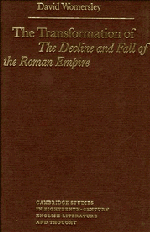
The Transformation of The Decline and Fall of the Roman Empire
-
- Published online:
- 05 September 2013
- Print publication:
- 17 November 1988
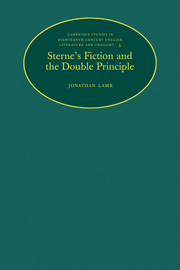
Sterne's Fiction and the Double Principle
-
- Published online:
- 05 February 2012
- Print publication:
- 05 October 1989
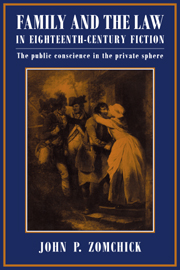
Family and the Law in Eighteenth-Century Fiction
- The Public Conscience in the Private Sphere
-
- Published online:
- 10 February 2010
- Print publication:
- 11 March 1993
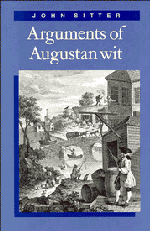
Arguments of Augustan Wit
-
- Published online:
- 28 January 2010
- Print publication:
- 12 December 1991
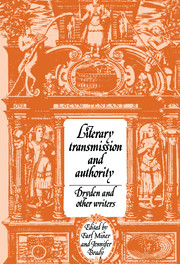
Literary Transmission and Authority
- Dryden and Other Writers
-
- Published online:
- 19 January 2010
- Print publication:
- 29 July 1993
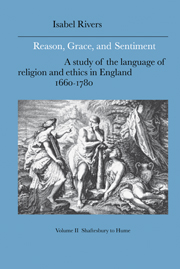
Reason, Grace, and Sentiment
- A Study of the Language of Religion and Ethics in England, 1660–1780
-
- Published online:
- 15 December 2009
- Print publication:
- 09 March 2000
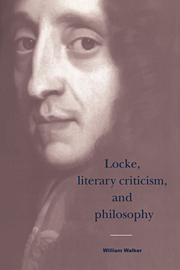
Locke, Literary Criticism, and Philosophy
-
- Published online:
- 23 November 2009
- Print publication:
- 01 December 1994
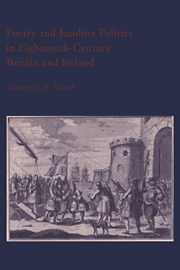
Poetry and Jacobite Politics in Eighteenth-Century Britain and Ireland
-
- Published online:
- 23 November 2009
- Print publication:
- 27 October 1994
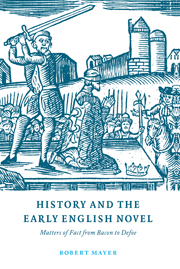
History and the Early English Novel
- Matters of Fact from Bacon to Defoe
-
- Published online:
- 31 October 2009
- Print publication:
- 03 April 1997
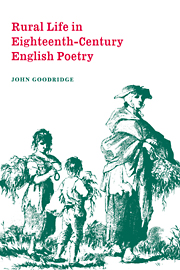
Rural Life in Eighteenth-Century English Poetry
-
- Published online:
- 30 October 2009
- Print publication:
- 18 January 1996
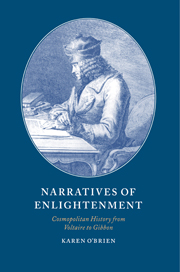
Narratives of Enlightenment
- Cosmopolitan History from Voltaire to Gibbon
-
- Published online:
- 28 October 2009
- Print publication:
- 05 June 1997
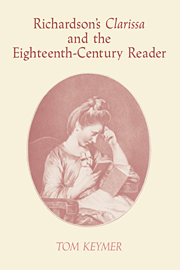
Richardson's 'Clarissa' and the Eighteenth-Century Reader
-
- Published online:
- 24 October 2009
- Print publication:
- 09 April 1992
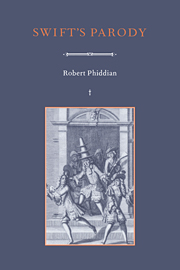
Swift's Parody
-
- Published online:
- 29 September 2009
- Print publication:
- 09 November 1995
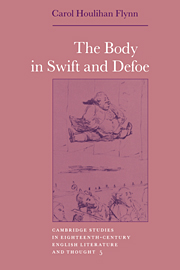
The Body in Swift and Defoe
-
- Published online:
- 21 September 2009
- Print publication:
- 27 July 1990
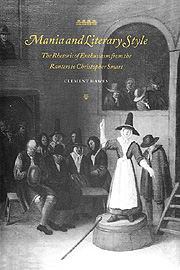
Mania and Literary Style
- The Rhetoric of Enthusiasm from the Ranters to Christopher Smart
-
- Published online:
- 16 September 2009
- Print publication:
- 26 January 1996
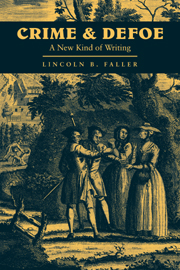
Crime and Defoe
- A New Kind of Writing
-
- Published online:
- 14 September 2009
- Print publication:
- 01 April 1993
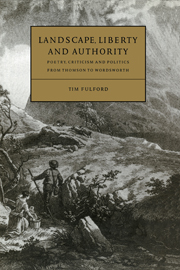
Landscape, Liberty and Authority
- Poetry, Criticism and Politics from Thomson to Wordsworth
-
- Published online:
- 14 September 2009
- Print publication:
- 28 June 1996
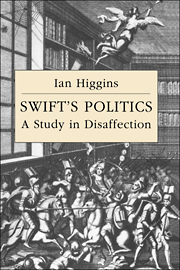
Swift's Politics
- A Study in Disaffection
-
- Published online:
- 25 August 2009
- Print publication:
- 05 May 1994
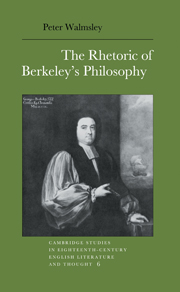
The Rhetoric of Berkeley's Philosophy
-
- Published online:
- 21 August 2009
- Print publication:
- 31 August 1990
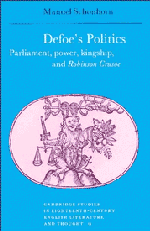
Defoe's Politics
- Parliament, Power, Kingship and 'Robinson Crusoe'
-
- Published online:
- 19 August 2009
- Print publication:
- 29 March 1991

